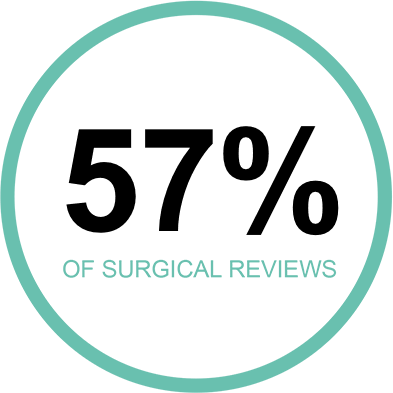Multidisciplinary team meetings
There were 57 out of 100 reviews that identified areas for improvement in multidisciplinary teamworking.
The following issues were highlighted:
- Inefficient administration (lack of timely distribution of patient details to be discussed and the supporting information).
- Attempting to discuss more patients than is feasible in the time available.
- Erratic attendance by core MDT members.
- Lack of specialist input from key clinical areas (eg radiology, pathology and oncology).
- A lack of dedicated and pre-planned time for key clinical personnel to support the MDT.
- Ineffectual chairing of the MDT discussion and poor management of decision-making.
- Inability to manage disagreements concerning appropriate treatment for patients.
- Uncivil behaviours and lack of respect between group members.
- Lack of documentation regarding decisions.
- Failure to follow through MDT decisions and lack of effective communication with patients.
- Difficulties with technologies required to support a meeting (video conferencing, access to computerised patient records, pathology and radiology results).
- Low-quality audit of MDT activity.
Resolving MDT problems can be difficult but is important. An ineffective MDT does not focus on what should be its key priority: enabling a widely-trained and highly-experienced group of healthcare professionals to assess the best treatment options for a patient. If these issues are not addressed at an early stage, a poorly-functioning MDT can significantly affect the quality of surgical care.

